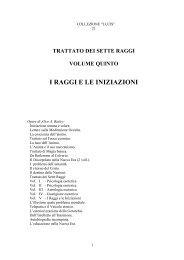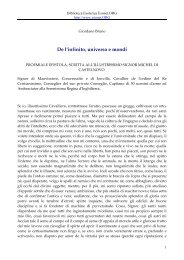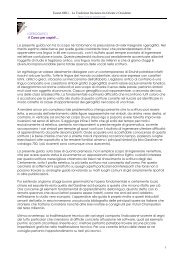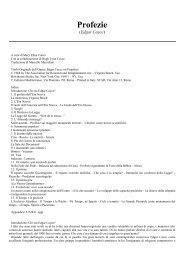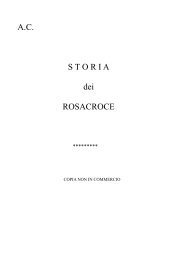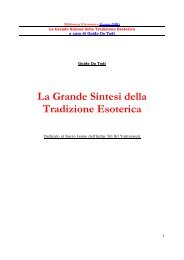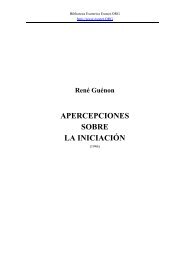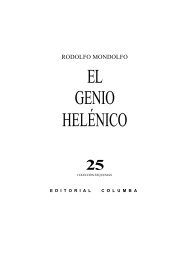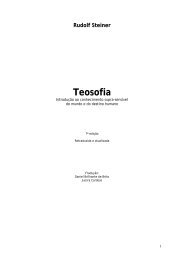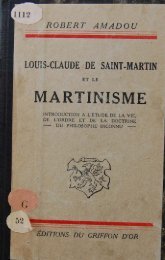Biblioteca Esoterica Esonet.ORG http://www.esonet.ORG 1
Biblioteca Esoterica Esonet.ORG http://www.esonet.ORG 1
Biblioteca Esoterica Esonet.ORG http://www.esonet.ORG 1
Create successful ePaper yourself
Turn your PDF publications into a flip-book with our unique Google optimized e-Paper software.
<strong>Biblioteca</strong> <strong>Esoterica</strong> <strong>Esonet</strong>.<strong>ORG</strong><br />
<strong>http</strong>://<strong>www</strong>.<strong>esonet</strong>.<strong>ORG</strong><br />
depends upon the mental picture one makes (or is taught and impelled to make) of the<br />
state to which the process of liberation leads. The person who feels bound at first may<br />
struggle against his or her bonds, even though he or she has neither a clear picture of what<br />
produced and originally imposed such a bondage nor a positive vision of liberation. Such<br />
a struggle remains blind and totally emotional until one realizes (or is made to realize)<br />
what it is that binds and what can be expected if one wins the struggle and becomes free.<br />
To lead one to such a realization and to help the struggler imagine what will be at the end<br />
of the struggle: this is the task of the philosopher, mystic, or theologian.<br />
The mystic philosophers of the Upanishad type perhaps were dealing essentially with<br />
the universal realization, common to all human beings, of the inevitability of death. Death<br />
is not a tragedy when seen by the mind of a person belonging strictly to the vitalistic era.<br />
For such a person, birth and death are merely events inherent in all life processes. The<br />
person is such a process; he does not separate himself from it. He begins to suffer from it<br />
only when he experiences himself as a "subject" to which death happens. By proclaiming<br />
the identity of atman and Brahman, the formulation of the Upanishads simply restated the<br />
nonseparateness of a living being from the One Life, from the continuum of being and<br />
changes filling all space. Nevertheless, the restatement had to be made in different terms,<br />
because the "living being" had become the "individual self" — that is, "I" as the experiencer<br />
of the continuum of changes. Brahman, however, was not merely universal "life;" It was<br />
life beyond birth and death, a transcendent Essence.<br />
11



